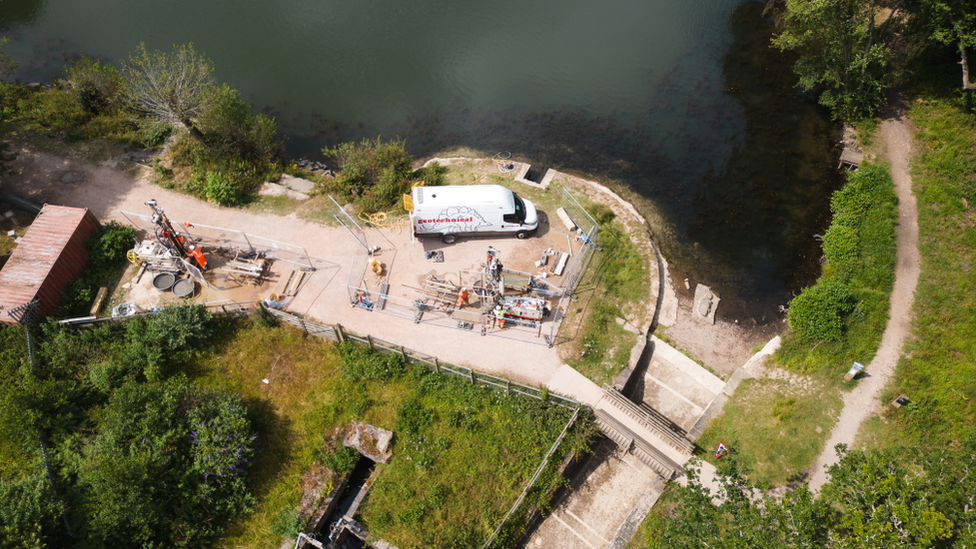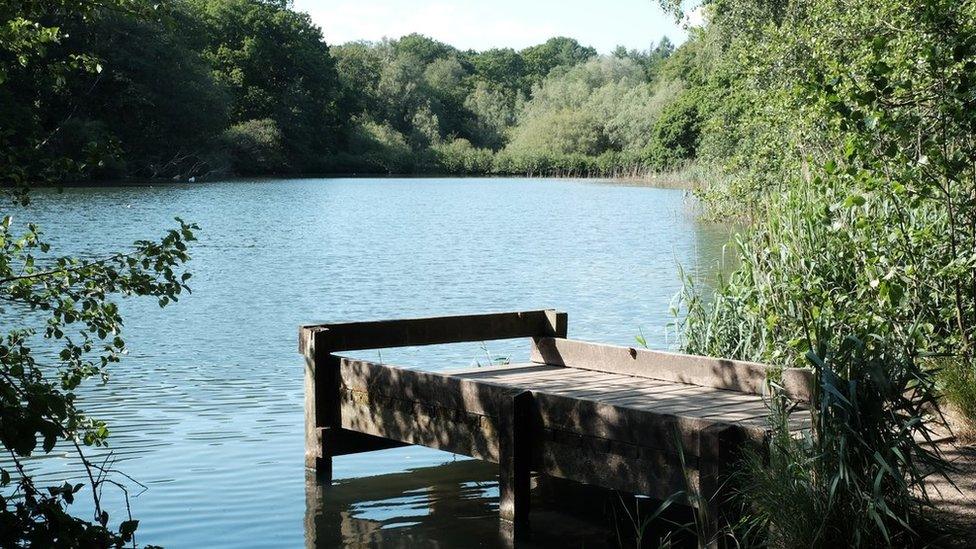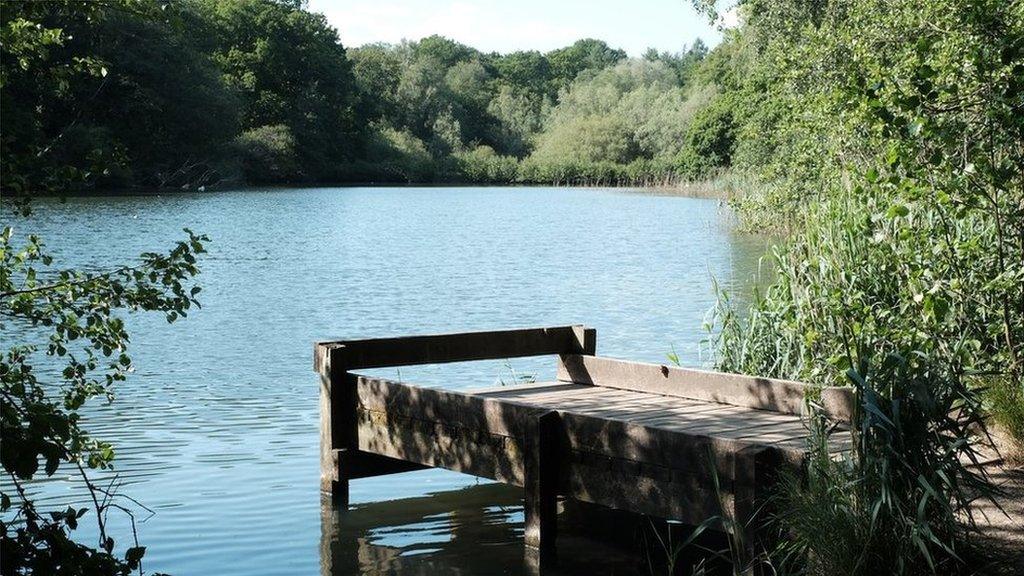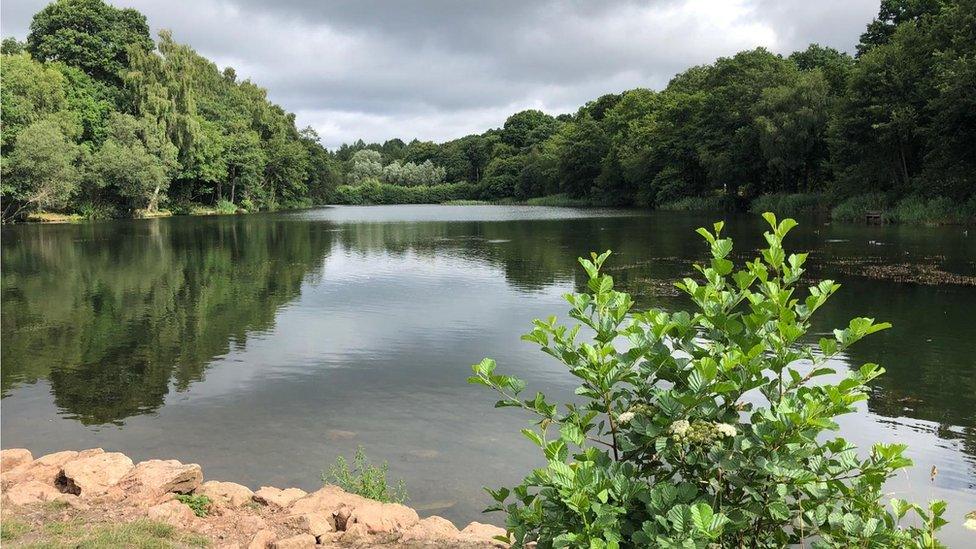Flood prevention work needed at Gloucestershire beauty spot
- Published

Cannop Ponds are two reservoirs in the Forest of Dean which date back to the 1820s
A study has found that significant work is needed on historic reservoirs at a popular beauty spot, in order to protect homes from flooding.
Forestry England said investigations at The Forest of Dean's Cannop Ponds had found material in both dams was not suited to retaining water.
It said "doing nothing is not an option" and work was needed to preserve the site and protect homes downstream.
A consultation on the future of the site was held earlier this year.
Forestry England said its ground investigations had confirmed the dams at the ponds, which date back to the 1820s, do not contain watertight clay, as is found in modern dams.
Josh Howe, director of engineering for Forestry England, said "substantial work" would be needed to protect the reservoirs for future generations.
"We fully understand the importance of the ponds to the local community and as custodians of the site our aim is to find the best solution to future-proof this cherished local landmark," he added.

Ground investigations revealed significant work would be needed to protect the reservoirs for future generations
A survey, carried out by Gloucestershire-based Geotechnical Engineering Ltd and engineering experts Arup, revealed the dams rely on earth forming at the dams in order to be watertight.
Within that earth, layers of granular material have been found, including sand and gravel.
Forestry England said this type of material is permeable and explains the historic seepage and safety issues at the dams.
Over time, seepage through the dams would increase the risk of potential failure, leading to flooding.
The ground investigation report is the final piece of evidence for a business case to go to Forestry England's investment committee, which will make recommendations, identify risks and give an estimate of how much the work will cost.
The committee's review will be presented to Forestry England's Executive Board in early 2024, and the plans will be made public.

Follow BBC West on Facebook, external, Twitter, external and Instagram, external. Send your story ideas to: bristol@bbc.co.uk , external
Related topics
- Published24 October 2023

- Published21 August 2023

- Published10 March 2023

- Published9 July 2023
